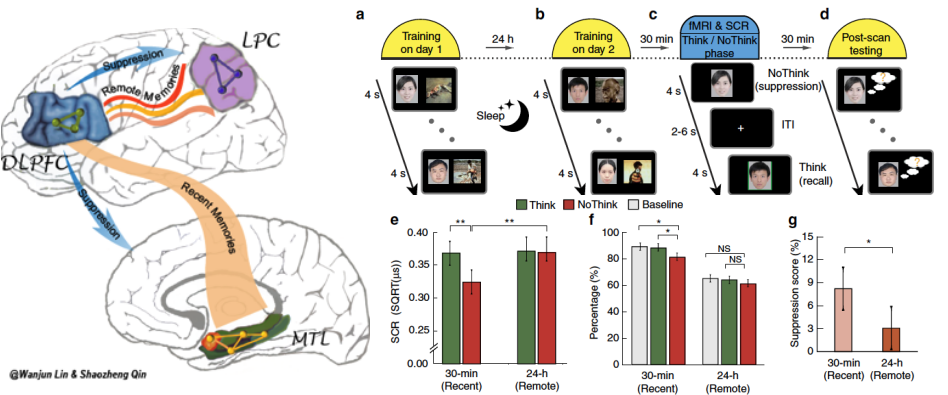
Human memory is an open high-capacity system: it allows us to learn and remember a vast amount of events and associated information, and to flexibly use information stored in memory to guide our thoughts and behavior. Our research interest is to understand how brain networks, especially the medial temporal lobe, the amygdala, prefrontal and parietal systems, dynamically coordinate to support very rapid and flexible access to information in memory.
In particular, memories for emotional events are often enduring, most likely through autonomic reactions to the emotional charge tagging on neuronal activity at the encoding and subsequent consolidation. The ability to suppress unwanted emotional memories is crucial for human mental health. We are also interested in understanding neurocognitive mechanisms of how emotional memories are encoded and evolved over time in the brain through (re)consolidation.
We human spend one third of our life in sleep is crucial for our physica lhealth, especially brain wellness and mental health. In learning and memory, sleep also plays acritical role instabilizing newly acquired information and transforming them into long-term memory. Utilizing functional brain imaging, sleep EEG, cognitiveand behavioral techniques, our “sleep” team investigates how sleep benefits children’s learning and memory in the context of educational neuroscience, and to explore how voluntary control and sleep-dependent (re)consolidation may help remedy unwanted emotional memories in individuals with anxiety and/or depression.








